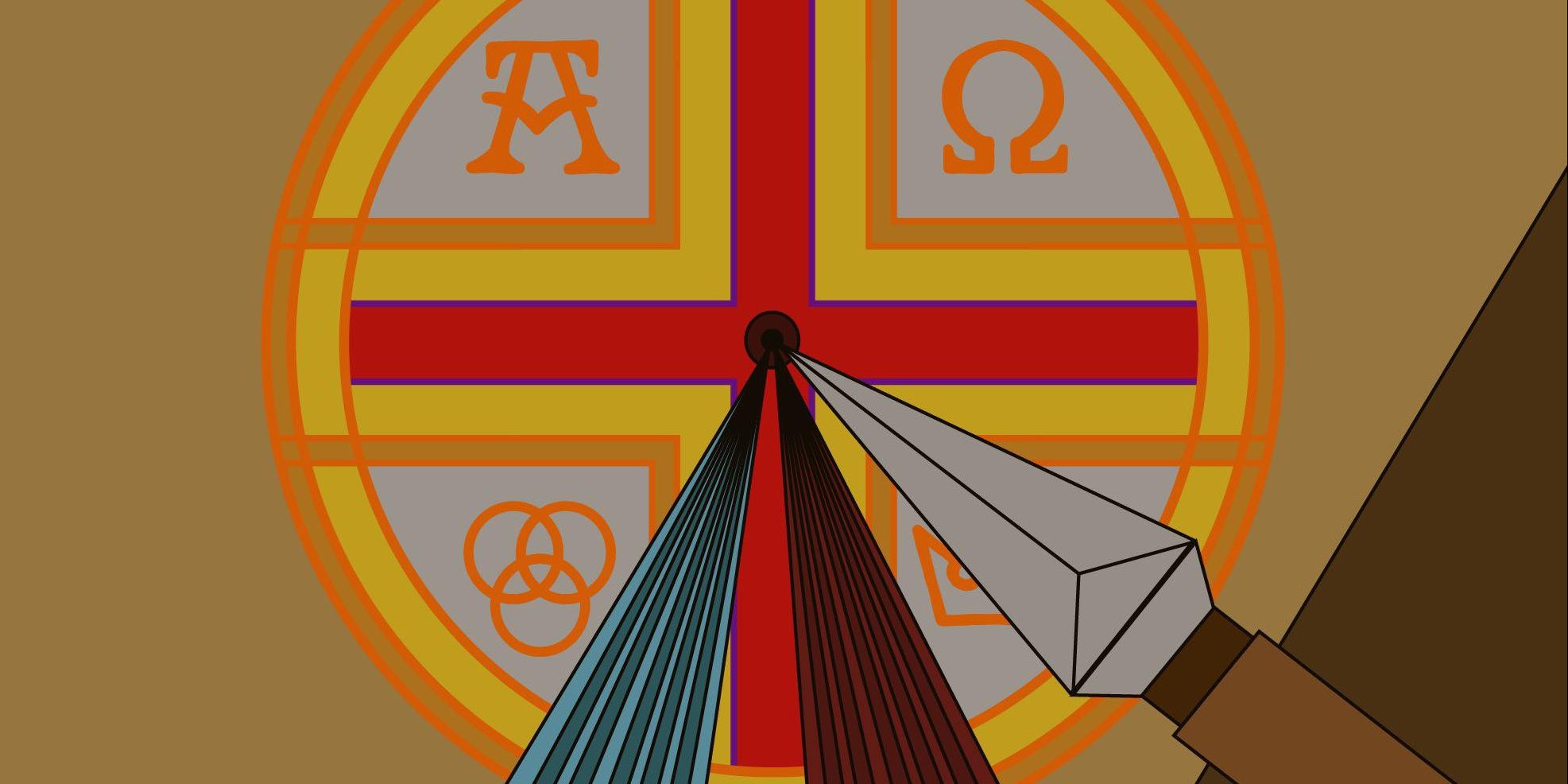by Terry Culpepper
When it comes to dating, I have two sticking points. First, the lady must be Catholic, or trying to become Catholic. I’m Catholic, and neither want to go through, nor put someone else through, the inevitable conflicts of where we worship and how we raise our children; those are non-negotiable. The second requirement may sound absurd and overly analytical, but I believe everyone would do well to follow this: your partner must pass the Spider-Man 2 test.
“But Terry, what in the world is the Spider-Man 2 test? You won’t date girls who dislike Spider-Man 2?” That’s a good question, and no, my wife doesn’t need to like Spider-Man 2, nor does she need to let me raise our children to like Spider-Man 2. Instead, the test goes deeper, but to explain it, it is better to first explain the essential brilliance of Sam Raimi’s web-slinging sequel.
What makes a great superhero movie? The cinematography? The action sequences? The score? These components contribute to a good film, but for all of their competent crafting, many superhero films fail to build on the genre as an essential activity in myth-making. For all their colorful set pieces, beautiful music, and great action, in moving from the sincere camp of Tim Burton, Joel Schumacher’s Batman Forever and Batman & Robin failed because they were ultimately “sound and fury, signifying nothing.” Instead, as successors to Greek myths and legends like Hercules and Achilles, superhero movies derive their greatness from how they reveal the nature of heroism to a viewer. And in answering, “What makes a hero?”, Spider-Man 2 takes the viewer one step further and asks the question: “Why be a hero?”
And to answer that, we need to look at Peter Parker’s life at the start of Spider-Man 2. In the first film, Peter refused to use his Spider powers to stop a random robber, who in a coincidence would kill Uncle Ben, his adoptive father. In other words, Peter could have easily prevented his Uncle’s death, but didn’t and lives with an assumed culpability because of it. Spider-Man 2 takes place almost two years later, and Peter has yet to tell this to anybody, leaving him overwhelmed with guilt. Simultaneously, Peter’s Aunt May is enduring incredible financial hardship without Uncle Ben’s support. She can barely afford the mortgage on her house. She ends up having to sell many of her possessions just to stay afloat. She relentlessly looks through newspapers, trying to find even the smallest of discounts and bonuses; even the prospect of getting a free toaster by opening a new bank account excites her. This, too, fills Peter with guilt, seeing himself as the cause of her hardship while helpless to aid her predicament. When she gives him a $20 bill for his birthday, he tries to refuse.
Despite Peter’s family life and emotional health being so low, he still has an asset that no other person in New York City has: he is the amazing, the spectacular, the one and only Spider-Man, relentlessly defending common citizens against the would-be tyranny of criminals and supervillains. We can see how Peter’s selflessness has benefited him.
Peter is failing at college. His professor, Dr. Connors, knows that Peter is a genius, and with no other plausible explanation accuses him of laziness.
Peter cannot hold a steady job, which he needs to support his college tuition and help out Aunt May. A job seemingly as mundane as pizza delivery turns into chaos theory when the responsibility of being the Spider-Man leads to him getting fired for delaying deliveries to instead save people.
Peter is forced to take a job as a freelance photographer and thus sells photos of Spider-Man. Unfortunately, he must sell to J. Jonah Jameson, who turns around and uses those photos to print libel and defame Spider-Man.
At the same time, Peter earns a personal reputation as a lazy burnout. Further, Peter’s best friend, Harry Osborn, resents him. Harry holds Spider-Man responsible for the death of his father, Norman Osborn, not realizing he was the Green Goblin, who terrorized the city in the previous film. This leads to an additional disdain for Peter, on account of Peter’s refusal to reveal not only Spider-Man’s identity, but also Norman’s identity as the Green Goblin, to protect Harry’s father’s honor. Meanwhile, Peter’s childhood school crush, Mary Jane Watson, finally requited his love at the end of the first movie, only for Peter to decline her advances in order to protect her from Spider-Man’s enemies. Despite this, Mary Jane remains Peter’s only friend (other than the distant and brooding Harry Osborn) and continues to chase Peter, seeking an emotional connection he tries to reject. MJ even sends him tickets to her Broadway shows, which he continually misses due to his heroic obligations and as a result, she finally chooses to get engaged to J. Jonah Jameson’s stabler son.
By comparison, Peter’s hero, Otto Octavius, is living the life Peter wants: Otto has a stable, loving relationship with his wife Rosie. Otto dreams of creating a renewable, infinite source of energy for mankind via a self-sustaining nuclear reactor on the verge of completion. However, at a live demonstration, the nuclear reactor malfunctions and the freak accident kills Rosie and fuses four mechanical limbs to his spinal cords. When the accident occurred, Spider-Man arrived on the scene to shut off the reactor. Thus, Peter’s hero, left as the deformed Doctor Octopus, also hates Spider-Man, holding him responsible for stopping his dream of infinite energy and killing his wife.
Spider-Man has destroyed Peter Parker’s life, which begs the question: if you want to enjoy life’s pleasures, why be a hero at all? Well, the answer is simple:
Don’t be a hero.
Peter could have it all if he were not Spider-Man, and he grows tired of breaking himself physically and emotionally. This leads Peter to subconsciously lose the will to be Spider-Man. Web-swinging through New York’s skyscrapers, which previously brought thrill and euphoria, now only provides sadness and melancholy, and in the middle of another melancholic swing, he simply loses his powers and plummets to the ground, his powers fading from despair.
Eventually, Peter gives up. He abandons the values Uncle Ben imparted in him that drove him to a life of service. Peter Parker is no longer Spider-Man.
And life becomes tremendous! Peter becomes an A student, gains healthy relationships, and get recognized as a new man, stress-free and satisfied. Mary Jane finds him more attractive, Dr. Connors voices his approval in school, and Peter can enjoy the hobbies he never had time for. Of course, the loss of Spider-Man has major ramifications for the city. Crime shoots up in the absence of New York’s web-slinging protector. As the four-armed menace, Doctor Octopus terrorizes the city and New York wonders, “Where is Spider-Man?”
Peter’s conscience as a protector kicks in when he sees a burning building. Even lacking powers, he runs in and saves a toddler as the building explodes behind him. Unfortunately, he comes to find out that one life perished in the building…a life that Spider-Man could have saved. Peter internalizes the fact that his Spider powers are a gift that obligates him to a life of responsibility. Peter confesses his complicity in Uncle Ben’s death to Aunt May, and they discuss the fact that each person has a duty to live out. “There’s a hero in all of us,” says Aunt May, but only Peter has Spider powers. He can do what others cannot, and to abandon a good only he can do cannot be justified.
Thus, Peter makes the choice to become Spider-Man again. Despite tasting the fruits of normalcy, he willingly sacrifices them to fulfill the responsibilities that only he can. This defines the hero as one who sacrifices. A person who can fly, turn invisible, or lift cars, et cetera is super, but a person who puts those abilities towards serving others is a superhero. In putting sacrifice over comfort, we can strive for greatness. Yes, Spider-Man ruined Peter’s life: his grades, his work, and his relationships plummeted, but he was serving New York in the best way possible with his gifts. Though happiness seems impossible as Spider-Man, Peter allows conscience and duty to motivate him.Spider-Man 2 and the Necessity of Sacrifice
This theme of sacrifice and duty extends to Otto Octavius. Even as Doctor Octopus, he relentlessly strives to create renewable energy, but his new, massive nuclear reactor has the potential to destroy half of New York City; the pursuit of glory and personal gain causes Doctor Octopus to ignore the lives of those around him. In the climactic battle, Peter takes off his Spider-Man mask to reveal his identity, explaining the values of responsibility imparted by his Uncle Ben: sacrifice over personal glory. Instead of a standard superhero beatdown, we witness our hero reach out to the monster, who realizes that his arms must be used to serve others.
Doctor Octopus is now Otto Octavius again, in front of a reactor that, if stabilized, could win him a Nobel Prize. But Octavius, living out his duty to sacrifice, resolves to destroy the reactor, which could destroy New York and kill millions without his intervention. Octavious drowns the reactor with himself in the Hudson river, exclaiming “I will not die a monster.” He dies not a monster, but a superhero.
This is the heroism that denotes a superhero movie. The flash that people normally associate with superhero movies is merely incidental. Who can vividly remember Iron Man defeating Iron Monger in Iron Man? What was the climactic battle of X-Men: The Last Stand? Which is the more memorable part of The Dark Knight’s climax: Batman beating up the Joker, or the prisoners refusing to blow up the ship with the civilians in order to save their own lives (hint: it’s not the former)? The flash remains secondary to the lessons we learn and the themes they impart. Beyond the classic Sam Raimi camp, Spider-Man 2 establishes its greatness in how it challenges our understanding of heroes.
I first watched Spider-Man 2 in a theater at Robinsons Metro East in Pasig, Philippines, all the way back in 2004, and have watched it many, many times since in different places and stages of my life. I could probably recite a large fraction of the lines by heart and no scene surprises me anymore. However, this movie challenges me as a person everytime I watch it. As I grow older, I relate to Peter’s struggles more and more, even without the obligation to protect the citizens of Chicago with spider powers.
This brings me back to my second non-negotiable dating rule. Any partner should challenge you to grow into a holier and greater person, just as Spider-Man 2 challenges me. I want to develop a deep connection with someone who reminds me of my permanent obligation to sacrifice and reciprocate this challenge to them. Marriage exists as not only a vocation, but also a sacrament, meaning it is on a higher level of importance than career, and thus should be held to a higher standard. The spouse who, like Spider-Man 2, inspires you to sacrifice and live up to your Godly potential is precisely the man or woman who will help you on the path to Heaven. ◆



0 Comments